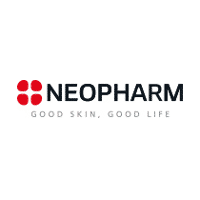预约演示
更新于:2025-05-07
CCND1 x Raf kinase
更新于:2025-05-07
基本信息
相关靶点 |
关联
1
项与 CCND1 x Raf kinase 相关的药物作用机制 CCND1抑制剂 [+1] |
在研机构- |
在研适应症- |
非在研适应症 |
最高研发阶段无进展 |
首次获批国家/地区- |
首次获批日期1800-01-20 |
100 项与 CCND1 x Raf kinase 相关的临床结果
登录后查看更多信息
100 项与 CCND1 x Raf kinase 相关的转化医学
登录后查看更多信息
0 项与 CCND1 x Raf kinase 相关的专利(医药)
登录后查看更多信息
522
项与 CCND1 x Raf kinase 相关的文献(医药)2025-04-01·Bioorganic Chemistry
Insights into curcumin’s anticancer activity in pancreatic ductal adenocarcinoma: Experimental and computational evidence targeting HRAS, CCND1, EGFR and AKT1
Article
作者: Li, Kezhou ; Liao, Dunshui ; Zhang, Xiao ; Tian, Jin ; Cao, Jun-Feng ; Xia, Zengliang ; Men, Jie ; Hang, Kuan ; Xia, Qingjie
2025-02-01·Pathology
CDK4 gene copy number increase and concurrent genetic changes in acral melanoma of a Chinese cohort
Article
作者: GUO, Ruiping ; Guo, Ruiping ; SHI, Fang ; Liu, Lingchao ; LIU, Yan ; Yang, Leyuan ; DU, Juan ; Liu, Yan ; ZHANG, Xin ; Zhang, Xin ; Su, Jing ; Shi, Fang ; LIU, Lingchao ; Du, Juan ; ZHAO, Jianfang ; SU, Jing ; Zhao, Jianfang ; Liu, Xiaolong ; LIU, Xiaolong ; YANG, Leyuan
2024-12-12·ACS Medicinal Chemistry Letters
Innovative Cancer Therapies: Targeting Oncogenic Pathways through Placental Immunology, PROTAC Technology, and Kinase Degradation
作者: Kargbo, Robert B.
11
项与 CCND1 x Raf kinase 相关的新闻(医药)2025-04-19
·漫游药化
导读前几节我们介绍了RTKs(第一、二期)、MAPK通路(第三期),今天我们介绍另一个在RTKs下游、与MAPK平行的另一个重要通路—PI3K通路。01PI3K的组成与激活方式磷脂酰肌醇3-激酶(Phosphatidylinositide 3-kinases,PI3K)是一种胞内磷脂酰肌醇激酶,具有磷脂酰肌醇激酶活性的同时,也具有丝氨酸/苏氨酸(Ser/Thr)激酶活性。PI3K可分为3类,其中研究最广泛的为I类PI3K, 此类PI3K为异源二聚体,由一个调节亚基p85(由PIK3R1基因编码)和一个催化亚基p110(由PIK3CA基因编码)组成。催化亚基共有α、β、δ、γ四种类型,其中,α、β、δ类对应p85α, p85β或p55调节亚基;而γ类对应p101和p84/87调节亚基。调节亚基具有SH2结构域,能够识别RTKs的胞内激酶结构域(TK),并引发催化亚基p110的激活。图 1. PI3K的激活方式PI3K的激活方式一共有4种。如上图所示,当胰岛素家族生长因子激活相应的RTKs时,p85可以通过IRS1等接头蛋白(Adapter Protein)间接被接活(a);此外,其他家族生长因子及RTKs结合时,p85也可以直接识别TK结构域(b);上一期中我们提到的RAS蛋白在RAS-GTP的形式下,也可以直接活化PI3K 的催化亚基p110(c)。Raf和PI3K均可被RAS调节是MAPK通路与PI3K通路存在交叉的主要原因;此外,γ型PI3K催化亚基还可以被某些G蛋白偶联受体激活(d)。02P13K催化功能图 2. PI3K催化的反应PI3K激活后能够催化PIP2的3位羟基磷酸化生成PIP3,从而进一步促进下游通路;恰恰相反,细胞中另一种酶PTEN则能催化这个反应的逆过程,并对PI3K下游的通路产生抑制作用。PIP3生成后,可以充当第二信使,同时招募PDK1和AKT蛋白到质膜上,使PDK1磷酸化AKT蛋白的308号位的苏氨酸(T308),导致AKT部分活化。被活化的AKT将进一步激活下游调控通路。03PI3k-AKT 通路图 3. PI3K-AKT及下游蛋白AKT 是一类 AGC 家族的丝氨酸/苏氨酸激酶,主要包含3 个结构域:PH 结构域(对 PIP3 有亲和力,对与胞膜的结合至关重要)、催化结构域、调节结构域。AKT作为一种原癌基因,在多种细胞过程中发挥关键作用,如葡萄糖代谢,细胞凋亡,细胞增殖,转录和细胞迁移;PI3K/AKT 信号通路失调见于多种人类疾病,包括癌症、糖尿病、心血管疾病和神经疾病。 AKT下游作用的底物分类繁多,结合上图我们对主要的底物进行概述:1、TSC2TSC复合体(结节性硬化症复合体)包含三个亚基:TSC1,TSC2以及TBC1D7,能够负调控mTORC1复合体的活性,起到肿瘤抑制的作用。产生这种作用的主要原理是:TSC2包含的GTP酶活化蛋白(GTPase activating protein,简称GAP)结构域,将GTP形式的RHEB(RAS家族的一种小G蛋白)水解为GDP形式的RHEB,导致RHEB失活,不能激活mTORC1的激酶活性,从而抑制细胞生长。而AKT诱导TSC2蛋白(tuberin) 的939位Ser和 1462位Thr磷酸化后,活性抑制,导致mTOR通路反而被激活;2、BADBAD(Bcl2相关的细胞死亡激动剂)能够正向调节线粒体的凋亡,AKT磷酸化该蛋白后,BAD活性抑制;3、MDM2AKT能够通过磷酸化p53的泛素连接酶—MDM2而使其激活,从而抑制p53产生的细胞周期阻滞与凋亡。4、p21 和 p27 CDK抑制因子p21和p27是两个重要的细胞周期调节因子,在正常细胞 DNA受损伤时 , 被P53诱导产生,抑制DNA复制,增强DNA修复,起到抑癌作用。而AKT磷酸化抑制这些CDK抑制因子后能够抑制其活性。5、GSK3βGSK3β(糖原合成酶激酶3β)是一种在进化上非常保守的丝氨酸/苏氨酸激酶,参与肝糖代谢,在Wnt 通路中扮演重要的角色。正常情况下GSK3β可以磷酸化β-catenin使其经蛋白酶体降解, AKT磷酸化GSK3β后,导致GSK3β失活,不能再磷酸化β-catenin,致使β-Catenin在胞浆内大量聚集,从而进入细胞核并激活与细胞分裂和生长调控相关的基因(如c-myc和Cyclin D1等)。6、IKK ( IκB kinase )IKK ( IκB kinase ) 被AKT磷酸化激活,IKK 进一步磷酸化抑制能够抑制NF-kβ途径的转录因子IκB(注意断句....),最终结果是:AKT正向调控了NF-kβ途径,从而对细胞生存、增殖、侵袭、血管生成和化疗耐药产生影响。 7、WEE1 CDK1抑制激酶—WEE1能够被磷酸化抑制,对有丝分裂产生影响。8、ASK1ASK1 (凋亡信号调节激酶1)是一种能够激活JNK信号通路(MAPK通路的一种,详情见第二期)的MAPKKK,与凋亡诱导,促凋亡和内皮网应激(ERS)有关,AKT磷酸化ASK1后,导致其活性抑制。9、FOXOFOXO是一种凋亡诱导转录因子,AKT磷酸化FOXO后导致其在细胞内重新定位并失去转录活性。综上所述,我们可以看出:AKT所产生的效应最终结果大多引起细胞增殖及避免凋亡。04PI3K-AKT-mTOR 通路及TORC复合物前面我们已经说过了,AKT能够通过抑制TSC2,间接导致RHEB激活mTOR增强。mTOR全称叫做哺乳动物雷帕霉素靶点(mammalian target of rapamycin, mTOR)。mTOR是一类丝/苏氨酸激酶,C端与磷脂酰肌醇激酶(PI3K)催化域同源,但是却不具备酯酶激酶的活性,而具有Ser/Thr蛋白激酶活性。mTOR 能够形成两种复合物:TORC1和TORC2。图 4. PI3K-AKT-mTOR通路除了能被AKT激活外,mTOR还能根据细胞环境的能量与营养情况被激活或抑制。如上图所示,当能量不足(AMP/ATP 比例增高)、缺氧时, TSC2、TSC1形成复合体增强,抑制mTOR复合物形成。当溶酶体氨基酸过量时,H+-vATP酶能够激活带有鸟嘌呤核苷酸交换因子(GEFs)的蛋白复合物Ragulator,从而促进TORC1的形成。图 5. TORC1与TORC2前面已经提到,mTOR有两种复合物:mTORC1 和mTORC2。mTORC1 由 mTOR、mTOR 调节相关蛋白 Raptor、MLST8 和非核心组分 PRAS40、DEPTOR 组成。mTORC2 由 mTOR、mTOR 帕霉素不敏感伴侣 RICTOR、MLST8 和 mSIN1 组成。这两种复合物的主要区别就在于:结合蛋白是Raptor还是Rictor以及相关蛋白是PRAS40还是mSIN1。其中,前者的区别主要决定TORC1对雷帕霉素敏感,而TORC2对雷帕霉素不敏感;而后者的区别则在于:PRAS40是AKT的底物,而mSIN1是MAPK的底物。从功能上来说,TORC2功能较为简单,它能够磷酸化AKT从而对mTOR产生正反馈,促进mTOR进一步活化(与前面PDK1的部分活化呼应)。TORC1则不同,能够继续磷酸化下游多种底物,调控细胞生存、增殖、蛋白质合成、脂质生成、血管生成和自噬等生物过程。05TORC1 下游底物与效应图 6. TORC1下游底物及效应TORC1 与蛋白质合成真核起始因子4E(eIF4E) 是一种帽结合蛋白,可以特异性地识别mRNA的5'端的帽子结构,在真核翻译的起始过程中发挥重要作用。其阻遏蛋白4EBP1磷酸化缺失时,eIF4E 不能被释放出来用于招募核糖体用于激活翻译过程。mTOR通过磷酸化4EBP1,解除其对EIF4E的抑制作用,从而促进翻译和蛋白质的合成。TORC1还可以先磷酸化激活下游AGC家族核糖体S6激酶(S6K1),S6K1可以磷酸化激活核糖体S6蛋白(RPS6)、PDK1(AKT上游激动蛋白)、MDM2(p53抑制因子)、转录调节因子EEF2、接头蛋白IRS等,磷酸化抑制促凋亡蛋白BAD。最终的效应就是:避免细胞凋亡、促进蛋白质合成。TORC1 与脂质合成TORC1除了促进蛋白质合成外,还可以磷酸化激活STAT3 (信号转导与转录激活因子3)促进细胞增殖;激活SREBPs(固醇调节元件结合蛋白)和PPARα和γ(过氧化物酶体增殖物激活受体) 促进脂质合成。TORC1 与血管生成TORC1能够通过激活HIF1α促进血管生成,而HIF1α也可以间接地激活TSC2,从而对TORC产生负调控作用。TORC1与自噬TORC1通过磷酸化抑制下游底物ULK1等自噬相关蛋白,抑制自噬过程。综上所述,TORC1通过磷酸化激活/抑制一系列底物,直接/间接提高了蛋白质和脂质的合成、促进细胞增殖,引起细胞和组织的生长。06PI3K-AKT-mTOR 与肿瘤从上文我们可知,PI3K 通路可以通过多种途径避免细胞凋亡,促进其存活及增殖。PI3K/AKT信号通路在肿瘤发生中广泛的激活,尤其是PIK3CA,PIK3R1,PTEN,AKT等基因存在高频突变(其中PIK3CA基因在大约36%的乳腺癌中存在突变),与肿瘤发生、发展以及耐药密切相关。目前该通路的主要涉及的突变有:1、PIK3CA突变PIK3CA是肿瘤中编码 PI3K 蛋白 P110 亚基的基因,具有较高的突变比例。在前列腺癌、乳腺癌等多种癌症中,超过 10%以上的病例存在PIK3CA 突变。其中,激活型突变占80%以上。激活点突变可以让 PI3K 蛋白不依赖上游信号,而持续保持激活状态。PIK3CA 突变被认为是 EGFR-TKI 治疗产生耐药的潜在原因之一。2、PTEN突变前文我们提到, 抑癌基因PTEN能够产生与PI3K相反的效应,因此其突变也导致癌症发展。在子宫内膜癌、脑癌、皮肤癌和前列腺癌中, 10%以上的病例存在 PTEN 基因突变。3、AKT突变AKT基因家族包括:AKT1,AKT2,AKT3。AKT 在肿瘤中最常见的突变形式,是激活点突变和基因拷贝数异常增加。在乳腺癌、结直肠癌、卵巢癌和膀胱癌中,有相当高比例的病例。图 7. 针对PI3K-AKT-mTOR通路设计的药物如上图所示,目前针对PI3K、AKT以及mTORC靶点的药物研发均有一些进展。参考文献:[1] Robert, Jacques. Textbook of Cell Signalling in Cancer [M]. Springer International Publishing, 2015.[2] Wagener C , Stocking C , O. Müller. Cancer Signaling - From Molecular Biology to Targeted Therapy[M]. 2017.[3] Amanda H . Cancer cell signalling[M]. Wiley Blackwell, 2014.部分素材来源于网络,侵删。预告第五期:细胞因子通路;第六期:TGFβ通路;原创不易,欢迎发现“分享”和“点赞”
临床终止临床2期
2024-01-23
IDC2024第六届化学创新药与改良型新药研发论坛:聚焦Protac、分子胶、CNS、小分子GLP-1、改良型新药研发过程。合作展位事宜请联系:李欣欣 158 0045 2389https://www.nurixtx.com/platform/targeted-protein-degradation/靶向蛋白降解技术(Targeted Protein Degradation,TPD) 是近几十年里新兴的一项蛋白质降解技术,其可以利用细胞自身的蛋白质清除机制(如溶酶体降解、蛋白酶体降解)来降解目标蛋白质。TPD的细分领域包括分子胶、PROTAC、LYTAC、AUTAC、AbTAC等,与传统的小分子抑制剂相比,TPD技术极大地扩展了可成药蛋白靶点的范围,并且在降解靶蛋白后可消除其所有功能直到蛋白重新合成。此外,TPD还可最大限度减少潜在的耐药性,并且可以循环利用,在催化剂量下起效,提高了药物的安全性,是目前制药界研究最为火热的领域之一。图1,TPD技术原理目前FDA 已批准了3款分子胶药物,即沙利度胺(Contergan)、来那度胺 (Revlimid) 和泊马度胺 (Pomalyst),用于治疗多发性骨髓瘤、骨髓增生异常综合征等,其中来那度胺在2021年的销售额达到了128.9亿美元。除分子胶以外的其他细分技术领域则暂未有药物获得FDA批准,进度最快的为PROTAC分子,截至2023年8月25日,已有29个PROTAC分子推进到临床试验其中,I期21个,II期7个,III期1个(为ARV-471,正处于乳腺癌的临床III期试验,预计将于2024年8月完成主要试验)。表1,PROTAC技术临床进展TPD药物和传统小分子抑制剂虽均属于小分子药物范畴,但二者在一些特性上仍具有显著区别。理论上来说,TPD药物在以下十个方面区别于传统的小分子抑抑制剂:与配体的作用模式无关(激动、拮抗均可)TPD药物不依赖于配体与其靶标的特定作用模式(例如激动、部分激动、拮抗等),只要与靶标结合即可有效地招募泛素连接酶对POI进行降解。这使得开发TPD药物时的配体筛选工作变得更为简单,而不需要像传统小分子药物那样去关注小分子到底是激动还是拮抗。以雄激素受体抑制剂为例,已上市的恩杂鲁胺等药物通过拮抗AR受体的活性来抑制肿瘤细胞增殖,但在某些突变的肿瘤细胞中(如H875Y、T878A等),靶向AR的小分子药物却由抑制活性变为了部分激动或完全激动活性,而这将促进肿瘤细胞生长。图2,AR抑制剂由于受体突变产生激动活性而Arvinas公司开发的AR受体降解剂ARV-766则可以很好的克服上述AR抑制剂药物的缺陷,在发生配体结合域突变(T878/H875/L702)的患者中,有42%对药物产生了显著响应,即血液PSA水平降低了50%以上。图3,ARV-766TPD药物在高靶标蛋白水平下也能发挥作用部分小分子抑制剂在抑制靶点活性时会导致细胞表达更多的对应靶标蛋白以适应小分子抑制剂,这将导致小分子抑制剂疗效丧失,MDM2抑制剂;MDM2抑制剂在使用一段时间后,将引细胞内MDM2水平的上升。Kymera Therapeutics 开发的静脉注射的MDM2降解剂KT-253(结构未公开)在小鼠体内则可克服MDM2小分子抑制剂的缺陷,迅速降解MDM2蛋白并导致肿瘤细胞死亡,单剂量的KT-253治疗就可带来持久的肿瘤消退。图4,KT-253专利中的代表分子可以影响靶标蛋白的非催化功能TPD药物可以完全消除目标蛋白,因此它们还可以影响POI的非催化功能,例如支架功能以及与其他蛋白的PPI作用,例如BRAF蛋白降解剂。BRAF是黑色素瘤中常见的突变癌基因,传统的小分子疗法如维莫非尼通过抑制突变BRAF的激酶活性来抑制突变BRAF所驱动的肿瘤生长。然而,目前已有的BRAF抑制剂却可能BRAF突变体后充当蛋白支架,招募野生型的RAF形成信号复合物,驱动肿瘤细胞生长,导致药物疗效降低,并可能激发耐药突变。图5,BRAF抑制充当蛋白支架招募野生型RAFCFT1946是C4 Therapeutics 开发的一种BRAF降解剂,它直接介导BRAF的降解,消除其支架功能,因此不会导致野生型RAF的激活,从而获得比小分子抑制剂更为持久的疗效。图6,CFT1946分子结构无需占据所有靶标蛋白TPD药物可以催化量对POI进行降解,在所结合的POI降解后TPD药物可再次结合另外的POI并诱导泛素化,因此降解剂和POI之间所需的结合亲和力理论上可以显着低于小分子抑制剂所需的亲和力,此外,POI浓度会随着时间推移而降低,药物疗效则可随时间积累,因此患者可用较低的日剂量来长期给药以产生更持久的疗效,增加了该类药物的安全性。图7,TPD药物可循环利用药效持续时间更长GSK公司开发的RIPK2 降解剂在小鼠体内可有效降解RIPK2蛋白,并显示出远超该PROTAC分子的PK数据预示的长效抗肿瘤作用,主要是因为RIPK2重新合成需要接近240小时,此外,将该PROTAC分子包裹在聚合物基质中时,在给药60天后仍能观察到RIPK2蛋白的降解。图8,GSK开发的超长效PROTAC可以使用替代结合位点TPD药物只需结合POI即可触发蛋白的泛素化,因此POI配体不一定需要对靶标蛋白产生直接的功能影响,只要能够成功结合即可,因此在筛选POI配体时,抑制剂、拮抗剂或是变构调节剂等均可作为筛选目标。C4 Therapeutics开发了一款基于变构调节剂的EGFR L858R降解剂,该PROTAC的POI配体仅结合L858R突变的EGFR,而豁免野生型EGFR蛋白,因野生型中不存在对应的变构结合位点。尽管该PROTAC分子量较大,但在小鼠的脑转移模型中仍能以50 mpk PO/BID产生疗效,并表现出优良的选择性。图9,EGFR L858R降解剂的可能结构E3连接酶的表达差异可带来组织选择性E3连接酶在组织中可能具有表达差异性,可为PROTAC分子提供POI配体之外的额外选择性,带来更佳的安全性。例如,E3连接酶在血小板是低表达的,而在肿瘤细胞中是正常或高表达的,基于此,Dialectic Therapeutics的研究者们便开发了组织选择性的Bcl-XL降解剂DT2216,在杀伤肿瘤细胞的同时,可以避免产生维奈克拉等BCL抑制剂的血小板减少副作用。图10,DT2216不降解血小板中的BCL-XL更低的组织分布浓度也可起效与传统的小分子抑制剂不同,TPD不需要药物饱和,其可在较低浓度下以催化机制发挥降解功能,并且药效可随着时间的推移而累积,这为治疗需要跨越血脑屏障的疾病(如多发性硬化症、脑转移瘤)提供了可能。例如,Nurix公司的第二代 BTK降解剂NX-5948据报道脑渗透率低于 5%,但其在小胶质细胞中仍具有抗肿瘤活性。图11,NX-5948作用机制可产生基于三元复合物的选择性在黑色素瘤中,突变型和野生型BRAF蛋白结构差异非常小,在使用小分子抑制剂时很有可能导致对野生型BRAF的脱靶抑制。而在形成BRAF蛋白-降解剂-E3连接酶的三元复合物时,突变型BRAF蛋白的复合物形成能力则远远高于野生型BRAF蛋白,这赋予了C4 Therapeutics的BRAF蛋白降解剂CFT1946针对野生型BRAF更高的选择性,在细胞实验中甚至未检测到对野生型BRAF的降解。可间接降解无配体的蛋白CDK4/6在细胞周期的G1/S的转换过程中起着关键的调控作用,在G1期,CDK4/6与细胞周期蛋白D (cyclin D)结合后被激活。西奈山伊坎医学院的Jian Jin在JACS报道了靶向CDK4/6的PROTAC分子MS28,该分子可以诱导泛素连接酶接近Cyclin D1和CDK4/6,并导致目前暂无小分子配体报道的Cyclin D1的优先降解,产生了更强的抗肿瘤增殖作用。图12,CDK4/6 PROTAC导致了Cyclin D1蛋白的降解随着临床前和临床研究的深入,TPD药物相对传统小分子抑制剂的差异化优势不断被发现发掘,也吸引了越来越多的研究者投入其中。就PROTAC技术来说,目前尚未有分子获批上市,但进度最快的已推进到临床III期,PROTAC分子的成药也只是时间问题。TPD药物在成熟靶点上的应用已有充分研究,但目前似乎更多是发挥了锦上添花的作用,展望未来,TPD药物更需要对难成药靶点、难治性疾病雪中送炭,通过开发新连接酶、新POI配体以及脑渗透性的PROTAC等来充分发挥TPD技术的潜能,解决临床未满足需求,造福广大患者。作者:LYQ参考Zhao, L., Zhao, J., Zhong, K. et al. Targeted protein degradation: mechanisms, strategies and application. Sig Transduct Target Ther 7, 113 (2022).https://data.pharmacodia.com/drug#/main/drugInfohttps://drughunter.com/Xiong Y, Zhong Y Jin J. et al. Bridged Proteolysis Targeting Chimera (PROTAC) Enables Degradation of Undruggable Targets. J Am Chem Soc. 2022 Dec 14;144(49):22622-22632.Holderfield, M., Nagel, T. & Stuart, D. Mechanism and consequences of RAF kinase activation by small-molecule inhibitors. Br J Cancer 111, 640–645 (2014).ENDIDC2024第六届化学创新药与改良型新药研发论坛:聚焦Protac、分子胶、CNS、小分子GLP-1、改良型新药研发。合作展位事宜请联系:李欣欣 158 0045 2389戳这里,阅读原文立即领取免费参会入场券
蛋白降解靶向嵌合体临床1期临床3期临床2期
2023-12-07
近几十年来,由于分子生物学的快速发展,揭示了对疾病发生和进展至关重要的关键生物大分子,为药物发现提供了有效途径。这些生物大分子包括激酶、受体和通道蛋白,它们与疾病发展的关系密切,具有特定的疏水口袋和结合后的功能变化,被定义为“可成药性”靶点,为药物设计奠定了基础。然而,随着基因组学和蛋白质组学的兴起,越来越多与疾病相关的靶点被发现,但它们缺乏传统可药性靶点的特征,被称为“不可药性”靶点。这些靶蛋白的功能界面平坦,缺乏配体相互作用口袋,使得药物设计成为巨大挑战。尽管如此,针对这些“不可药性”靶点也被认为是治疗人类疾病的巨大机遇,并在医学领域引起了重视。一些典型的不可药性靶点包括小GTP酶、磷酸酶、转录因子、表观遗传靶点和蛋白质-蛋白质相互作用(PPIs)等。这些靶点的特点包括缺乏药理学可靶向口袋、结构异质性、缺乏可追踪的结合位点和平坦的相互作用表面。面对“不可药性”,目前已经发展出数十种创新方法,制药公司投资数十亿美元,将“不可药性”靶点转变为“难以药物化”或“待药物化”靶点,并已取得了多个药物的批准。这些策略包括共价抑制、变构抑制、PPIs抑制、靶向蛋白调控、以核酸为基础的方法和免疫治疗等。同时,利用先进的技术如基于碎片的药物发现、计算机辅助药物设计、虚拟筛选、DNA编码库和靶向变构位点等,药物设计策略得到了进一步的发展。本文就这些针对“不可药性”靶点的经典策略做一个简要介绍。共价调节共价抑制剂,也称不可逆抑制剂,是一类通过较弱反应性的功能团以共价键结合到目标蛋白的氨基酸残基上,相比于非共价抑制剂,具有持续抑制和更长的驻留时间的优势。同时,共价抑制剂也可以降低剂量并改善依从性,避免一些潜在的耐药机制。经典的共价抑制模式,如共价KRAS抑制剂结合到KRASG12C突变体的半胱氨酸上,降低GTP和KRAS之间的亲和力,从而使KRASG12C突变体处于未激活状态;共价EGFR抑制剂结合到EGFR的ATP结合位点的Cys797上,对T790M突变体表现出高亲和力并解决耐药问题;共价p53稳定剂结合到p53-Y220C突变体上,将热稳定性恢复到野生型水平,或防止MDM2和p53的相互作用(图1)。图1.经典的共价抑制模式由于共价抑制剂可以靶向缺乏表面“口袋”的不可药性蛋白质,从而扩大治疗范围的潜力,因此在攻克“不可药性”领域具有重要意义。例如,Nirmatrelvir是Paxlovid的一部分,已被批准用于COVID-19的紧急使用,它是Mpro SARS-CoV-2的共价抑制剂,突出了半胱氨酸反应性共价功能团在靶向Mpro的蛋白酶活性位点中的重要性。KRAS G12C抑制剂sotorasib的批准也是共价药物发展和攻克“不可药性”领域的一个重大里程碑。变构调节在过去,药物设计的重点是治疗蛋白质靶点的正向位点。然而,许多这些靶点被发现是不可药性或难以在其正向位点上靶向,因为它们与底物的亲和力很高,缺乏结构信息或其活性位点高度保守。为了克服这些挑战,变构调节被提出作为一种常用的策略,其在自然界中常被用于通过调节生物分子的“远程”亲和力来控制细胞过程。变构调节剂可以通过稳定靶蛋白在非活性或活性状态下来高度可预测地改变蛋白/底物的亲和力,从而可控。相对于正向抑制剂,变构调节剂具有几个优点。首先,变构配体不必与高亲和力底物竞争,使得开发变构调节剂更为简单。其次,变构位点多样,可以在同源蛋白中提供更好的选择性,从而减少副作用并在临床应用中具有更大的价值。第三,变构调节剂具有理想的“效应上限”。一旦变构位点被占据,就不会观察到任何额外的效应,表明在超量条件下药物的安全性。此外,正向抑制剂和变构调节剂可以同时靶向不可药性蛋白,以实现协同作用并克服耐药性。变构调节剂不仅可以像正向抑制剂一样抑制靶点,还可以稳定或竞争性地占据靶点,以改善病理状态。根据其对受体的影响,变构调节剂可以分为三类:正向变构调节剂(PAMs),可以改善正向效应物的作用,但没有固有活性;负向变构调节剂(NAMs),可以抑制正向效应物的功能;沉默变构调节剂(SAMs),可以通过阻断正向和负向变构调节剂的变构位点来抑制变构活性(图2)。图2. 经典的变构抑制剂因此,变构位点的鉴定和相应的药物设计为以前被认为在其正向位点上“不可药性”或“难以靶向”的蛋白质开辟了新的治疗机会。自从变构调节的概念在20世纪60年代首次提出以来,许多变构药物已应用于临床实践。变构药物设计的重点最初是抑制高度保守的激酶和GPCR的活性位点,作为克服正向调节剂在临床应用中出现的不良选择性和耐药性的替代选择。经过十年的发展,目标类别的范围已扩展到其他领域,包括一些缺乏上市药物的不可药性蛋白质,例如KRAS和SHP2。值得注意的是,一些靶点提供了将共价性和变构调节同时应用于药物设计的机会。例如,AMG510(sotorasib),第一个获得FDA加速批准的KRAS抑制剂,是KRASG12C突变体的共价变构抑制剂,凸显了合理设计共价变构药物的重要性。PPIs抑制蛋白质-蛋白质相互作用(PPIs)在生物过程中扮演着重要的角色,如信号传递、细胞增殖、生长、分化和凋亡等。但异常的PPIs会导致多种疾病,如癌症、传染病和神经退行性疾病等。由于不可药性蛋白质通常通过PPIs网络发挥作用,这些网络特征是蛋白质之间的大型、平坦和未定义的界面。这些网络长期以来被认为是不可药性的生物过程。因此,设计靶向PPIs的药物是一种有效的策略,以靶向不可药性蛋白质。相对于其他蛋白质-配体相互作用,如酶、离子通道或受体,设计靶向PPIs界面的调节剂更具挑战性。目前已经研制出许多靶向PPIs的调节剂,其中许多已经成功进入临床。这些PPIs抑制剂可分为几类,包括小分子、抗体、肽或重组蛋白,每种类型都有其优缺点。小分子具有良好的药代动力学特性,如细胞膜渗透性和口服生物利用度,并且在时间和经济方面成本低廉,是制药化学家的首选。然而,它们对于紧密和狭窄的PPIs界面的适用性和选择性差限制了它们在靶向PPIs方面的应用。相比之下,治疗性抗体适用于通常较宽的PPIs界面,具有更强的靶向特异性和高效性,但相应的大分子量限制了它们在靶向细胞外目标方面的应用。此外,单克隆抗体引起的免疫反应相关的不良反应也不可忽视。肽或组合蛋白基于热点设计,保留了结合靶点的关键特性,可以形成更强的亲和力和靶向特异性。但肽和蛋白质具有一般的物理化学性质,如在生理条件下的不稳定性、口服生物利用度和溶解度差,使得它们不是最佳的药物。“热点”位点的发现使得靶向PPIs变得更加有效。热点残基是指在蛋白质之间形成结合位点的PPIs界面。根据抑制剂是否结合PPIs界面,PPIs调节剂可分为正向抑制剂或变构调节剂(图3)。正向抑制剂通过识别热点来设计靶向PPIs界面,而变构调节剂在PPIs界面上没有定义热点时,通过调节非相互作用区域诱导靶蛋白的构象变化。根据结合模式,PPIs调节剂可分为非共价和共价。因此,一些上述共价抑制剂和变构调节剂的情况也是PPIs抑制剂。图3. 经典的PPIs抑制剂靶蛋白的调控 随着医学技术的不断发展,直接调节与疾病相关的蛋白质已成为一种治疗不可药性的靶点非常有前途一种有效手段。根据疾病机制,蛋白质调节可以分为两类:蛋白质降解和蛋白质稳定。一种常用的蛋白质调节技术是蛋白质降解技术(PROTAC),它可以通过将蛋白质与泛素连接酶配体结合,使目标蛋白质被降解。PROTAC技术已经成功地应用于靶向降解一些被认为是不可药性的蛋白,如KRAS、Bcl-2、Cyclin D1、STAT3、SHP2、FoxM1、C-MYC和p53。除了PROTAC技术,还有其他创新技术被用于靶向不可药性的蛋白质。例如,分子胶水技术可以用于靶向降解IkZF,ATTEC技术可以用于靶向mHTTh或Tau,DUBTAC技术可以用于靶向转录因子。这些技术也都显示出在靶向不可药性靶点方面的潜力。图4. 靶蛋白的调控策略基于核酸的方法RNA基因治疗是一种利用RNA分子来调节基因表达的治疗方法,近年来受到了广泛的关注和研究。人们逐渐认识到RNA在细胞信息传递和基因调控方面的重要作用,这为靶向RNA提供了治疗以前被认为是“不可药性”的蛋白靶点相关的细胞过程的机会。RNA基因治疗的发展离不开沃森-克里克互补规则的驱动。根据这一规则,RNA分子可以与DNA或其他RNA分子形成互补配对,从而干扰基因的表达。因此,通过设计合适的RNA分子,可以实现对“不可药性”蛋白质的调控,从而拓宽可药性靶点的范围。自从1970年代首次提出以来,RNA基因治疗已经取得了显著的进展,并被分为几个不同的类型。其中,反义寡核苷酸(ASO)和RNA干扰(RNAi)是最具代表性的类型,也是临床开发和治疗应用最广泛的类型。ASO是一类寡核苷酸分子,通过与目标mRNA分子的互补配对,可以引发降解或抑制目标mRNA的翻译过程,从而达到调控蛋白质表达的目的。ASO已经成功应用于一些疾病的治疗,例如肌萎缩性脊髓侧索硬化症(ALS)和家族性高胆固醇血症(FH)等。RNAi是一种通过引入特定的小干扰RNA(siRNA)或微RNA(miRNA)分子来实现基因沉默的方法。siRNA和miRNA可以与目标mRNA分子形成互补配对,从而促使目标mRNA的降解或抑制翻译过程。RNAi已经在许多疾病的治疗中显示出潜力,如肝癌、视网膜色素变性症等。除了ASO和RNAi,还有其他类型的RNA基因治疗方法,如CRISPR基因组编辑和G4稳定化等。这些方法利用RNA分子的特殊性质来实现对基因组的精确编辑或调控(图5)。 图5. 以核酸为基础的方法和针对不可药性靶点的案例免疫疗法免疫疗法是一种利用免疫系统来治疗疾病的方法,在调节疾病进展方面发挥着至关重要的作用。近年来,免疫疗法在治疗多种类型的癌症方面取得了卓越的成功,因此备受关注。免疫疗法具有潜力治疗由不可药性蛋白质引起的各种疾病。免疫疗法的范围非常广泛,包括免疫检查点抑制剂、疫苗、特异性抗体和细胞免疫疗法等。这些方法已经被用于改善与p53和RAS相关的疾病的治疗(图6)。图6. 免疫疗法方法针对不可药性靶点的案例靶向上游/下游效应器或辅因子在治疗不可药性靶点蛋白方面,直接调节蛋白质的表达和功能已成为一种有效的策略。然而,由于某些复杂的生物网络和信号通路,有时候直接靶向不可药性蛋白质并不是最好的选择。而通过靶向上游或下游蛋白质来调节相关的信号通路已成为一种间接靶向不可药性蛋白质的替代方法。以RAS为例,失活RAS上游的受体酪氨酸激酶,如EGFR家族,可以减少RAS的激活,从而使抑制EGFR成为治疗RAS突变肿瘤的有效方法。此外,MAPK和PI3K是能够被RAS激活的效应途径,完全抑制MAPK通路可以帮助治疗RAS突变肿瘤。因此,RAF抑制剂、MEK抑制剂和ERK抑制剂可以与其他抑制剂组合使用。除了靶向信号通路,靶向转录因子也是一种有前途的方法。转录因子是一类能够调节基因表达的蛋白质。失调的转录因子会导致基因表达异常,从而导致疾病的发生和发展。因此,靶向转录因子成为一种有前途的方法。目前,CDK9抑制剂KB-0742和BD2抑制剂ABBV-744已显示出在转录程序中具有高选择性,使它们成为有吸引力的治疗开发候选药物。诱导合成致死合成致死性是一种起源于古典遗传学的概念,指的是同时发生两个基因突变导致细胞死亡,但是单独突变任何一个基因都不影响细胞存活。这个概念在肿瘤治疗中具有重要意义,因为它提供了一种新的方法来治疗某些癌症类型。在肿瘤中,基因突变会导致细胞生长和分裂的异常,从而形成肿瘤。但是,单个突变的基因往往不足以导致肿瘤的形成,而是需要多个基因的协同作用。因此,鉴定合成致死性基因对非常重要。例如,在KRAS突变细胞系中,RAF1和SHOC2分别编码CRAF和SHOC2已经显示出重要性。这表明抑制CRAF和SHOC2可以用于KRAS突变癌症的治疗。在Myc的情况下,已经进行了关于合成致死性的Myc的一期临床试验,通过评估每周Dinaciclib与Pembrolizumab联合应用在晚期乳腺癌患者中的安全性和耐受性。在Myc过表达的三阴性乳腺癌(TNBC)异种移植中,使用Dinaciclib抑制CDK1导致合成致死性,并减弱了远处转移。CHK1抑制剂和GLS抑制剂也被认为是治疗Myc过度表达癌症的潜在候选药物。2012年Grandori的研究小组进行了高通量siRNA筛选,鉴定出一组与c-Myc过表达细胞生存相关的基因网络,其中CAMK2G被筛选出来,并被进一步验证为该网络中最具潜力的基因。后来, CAMKIIγ被证明是抑制T细胞淋巴瘤必要的靶标,通过不稳定化c-Myc。使用其特异性抑制剂Berbamine抑制CAMKIIγ可以抑制T细胞淋巴瘤的发展并降低肿瘤负荷。靶向翻译后修改(PTMs)翻译后修饰是一种调节蛋白质功能和稳定性的重要机制,对不可药性转录因子的调控具有至关重要的作用。翻译后修饰可以改变蛋白质的亚细胞定位、稳定性、相互作用和DNA结合特异性,从而影响其功能和活性。因此,靶向翻译后修饰已成为治疗相关疾病的一种替代方法。以JAK/STAT信号通路为例,JAKs是该通路的关键成员之一,它们可以使STATs磷酸化,并激活转录因子的活性。因此,抑制JAKs是阻断各种免疫介导的疾病和癌症中JAK/STAT通路异常激活的有效方法。目前,已经开发出多种JAK抑制剂,如Tofacitinib和Ruxolitinib等,这些药物已在临床上得到广泛应用。另一个例子是针对肾性贫血的PHD抑制剂。PHD是羟化酶,可以使HIF-α羟基化,并导致其降解。因此,通过抑制PHD,可以增加HIF-α的稳定性和活性,从而促进红细胞生成和肾性贫血的治疗。目前,已经有多种PHD抑制剂被批准用于临床治疗,如Roxadustat、daprodustat、vadadustat、enarodustat和molidustat等。除了JAK和PHD之外,其他转录因子也可以通过靶向翻译后修饰来进行调节。例如,p53是一个重要的抑癌因子,在多种癌症中发挥着重要作用。一项蛋白质组学研究确定了99个p53抑癌蛋白的222个翻译后修饰位点,这些修饰可以改变p53的DNA结合活性和辅因子相互作用,代表了高度可操作的转录因子活性调节靶标。小结“不可药性”靶点一直是药物发现的挑战。但是,随着新技术的出现,靶向“不可药性”靶点的药物设计策略得到了不断改进,包括开发共价抑制剂、变构抑制剂、靶向蛋白质相互作用等方法。多种药物类型的分子已经被证明是有效的,其中一些已经上市。希望随着更优的治疗策略的出现,药物靶点的范围将进一步扩大,触及各种疾病,并带来具有前景的药物。参考资料1.Recent advances in targeting the“undruggable”proteins: from drug discovery to clinical trials.2.Strategies for targeting undruggable targets.本周好文推荐如需转载请联系佰傲谷并在醒目位置注明出处﹀ ···
免疫疗法
分析
对领域进行一次全面的分析。
登录
或

生物医药百科问答
全新生物医药AI Agent 覆盖科研全链路,让突破性发现快人一步
立即开始免费试用!
智慧芽新药情报库是智慧芽专为生命科学人士构建的基于AI的创新药情报平台,助您全方位提升您的研发与决策效率。
立即开始数据试用!
智慧芽新药库数据也通过智慧芽数据服务平台,以API或者数据包形式对外开放,助您更加充分利用智慧芽新药情报信息。
生物序列数据库
生物药研发创新
免费使用
化学结构数据库
小分子化药研发创新
免费使用
